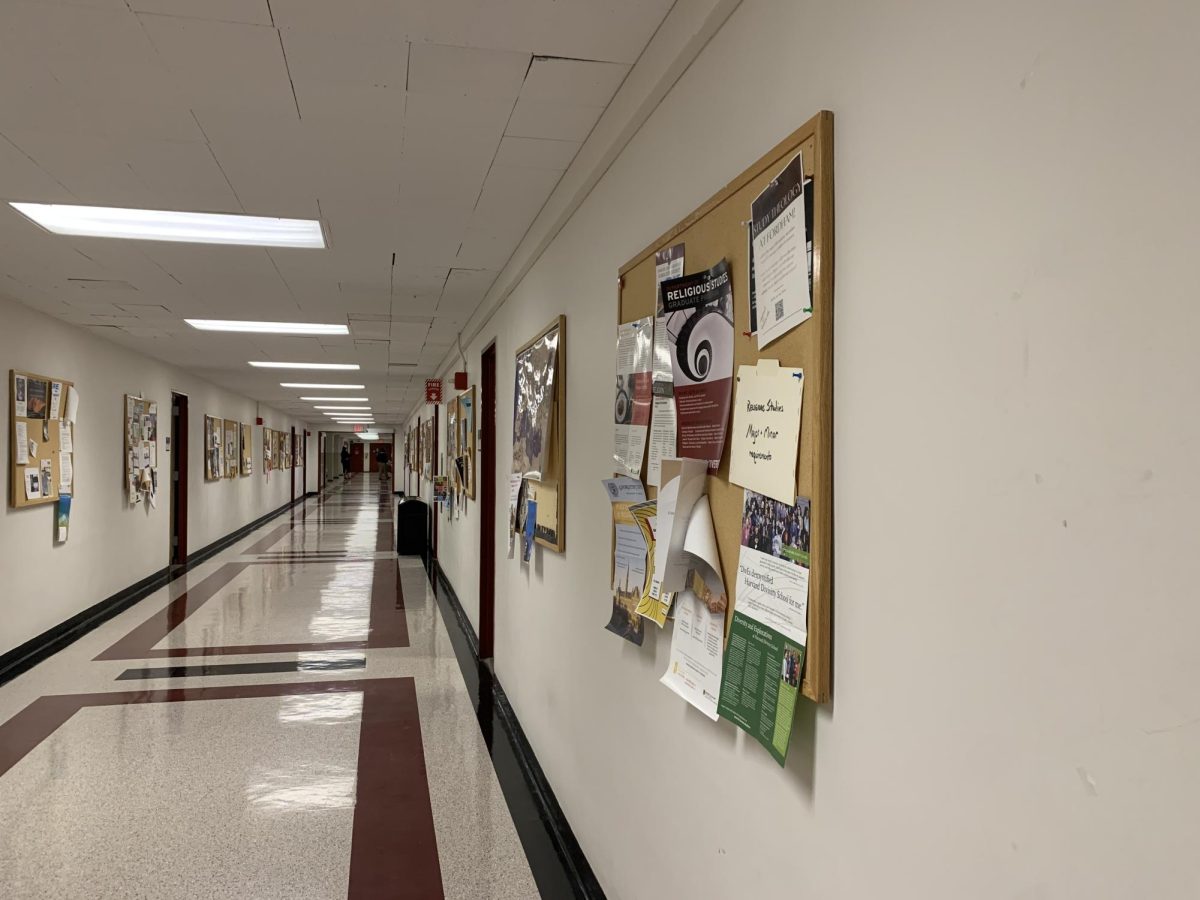The Faculty Evaluation Committee (FEC) has proposed replacing the current course evaluation system with a more holistic survey of students’ learning outcomes called the Student Experience Survey (SES).
Sean M. Collins, chair of the arts and sciences FEC and associate professor of economics, said the current Student Evaluation of Educational Quality (SEEQ), which the FEC hopes to replace, unfairly evaluates faculty members.
All Fordham students are encouraged to fill out the SEEQ made available for all their courses before the end of the semester. According to Fordham’s course evaluations site, department chairs and reappointment, promotion and tenure committees view the data collected through these surveys.
According to Collins, the FEC is currently gathering feedback from Fordham community members and will seek approval on the proposition to use the new survey by the arts and sciences governing body before the end of the semester. Through the SES, the committee intends to incorporate student experiences, peer review of an instructor’s pedagogy and self-assessment by the instructor into the evaluations rather than relying solely on student feedback.
According to Collins, if the new survey is approved this semester, the FEC anticipates a pilot study in spring 2024, in which the university would invite students in select courses to fill out the SES in place of the SEEQ.
Tiffany Ng, Fordham College at Lincoln Center (FCLC) ’26, said she looks forward to seeing these changes implemented because she has personally encountered many of the issues which the FEC seeks to address.
Currently, Ng said she only fills out the evaluation form for the professors that provide her with time during class and questioned the value of filling out the surveys on her own accord, because she is unsure as to whether or not her professors review them.
“Also, when reading professors’ reviews on Rate My Professor (a website some students use to review their professors for prospective students to read), oftentimes, the same complaints are written year after year by students,” Ng said.
According to Collins, if the new survey is approved this semester, the FEC anticipates a pilot study in spring 2024, in which the university would invite students in select courses to fill out the SES in place of the SEEQ. Contingent on the success of the pilot rollout of the SES, Collins noted that all arts and sciences courses would utilize the SES in fall 2024.
Collins pointed to four guiding principles for the survey: diversity, equity and inclusion; student feedback as a part of the holistic view of teaching effectiveness; clarifying the intent of student feedback; and garnering feedback representative of the student experience. The previous survey was composed of over 40 questions, Collins added that the revised SES will have 15 or fewer questions that are more inclusive of subjective and diverse teaching methods, and the survey will focus on gauging how students’ learning can best be supported.
He noted a clear example of the SEEQ’s lack of fairness being in one of its questions asking students to rank the use of humor in instructors’ presentations. The prompt signals that humor is an indicator of a positive course experience, thereby implying that a lack of humor may indicate a negative course experience.
Sofiya Waraich, FCLC ’25, found that one of the questions in the SEEQ was difficult to answer accurately.
“There’s a question about how many hours students spend per week doing work outside of the class — it’s hard to answer accurately because the workload for each class fluctuates throughout the semester,” she said.
“We also know that students need access to useful feedback from other students in order to make informed course selections.”
Sean M. Collins, chair of the arts and sciences FEC and associate professor of economics
The chair of the FEC noted that the SEEQ no longer aligned with the principles the FEC articulated for how student feedback should be obtained and used in the process of evaluating teaching. He also added that the SEEQ garnered low response rates, prompting a reevaluation.
“Responsiveness to student experiences is a pivotal component of teaching, and doing this better is the focus of the change from the SEEQ to the SES,” Collins said.
He further explained that because the SEEQ has a low response rate, the evaluation results are likely representative of only the most opinionated students’ experiences instead of the entire student body. Responses may portray a skewed view of one’s experience with a specific course or professor.
“As faculty, we need feedback and help from students to make the classroom a space for effective learning,” Collins said. “But, we also know that students need access to useful feedback from other students in order to make informed course selections.”
The committee hopes to better clarify how SES responses will be used, and emphasize that SES responses will remain anonymous, like the SEEQ.
Contingent on the success of the pilot study to be run in the spring 2024 semester, the FEC expects to roll out the SES for all arts and sciences courses in the fall 2024 semester.


